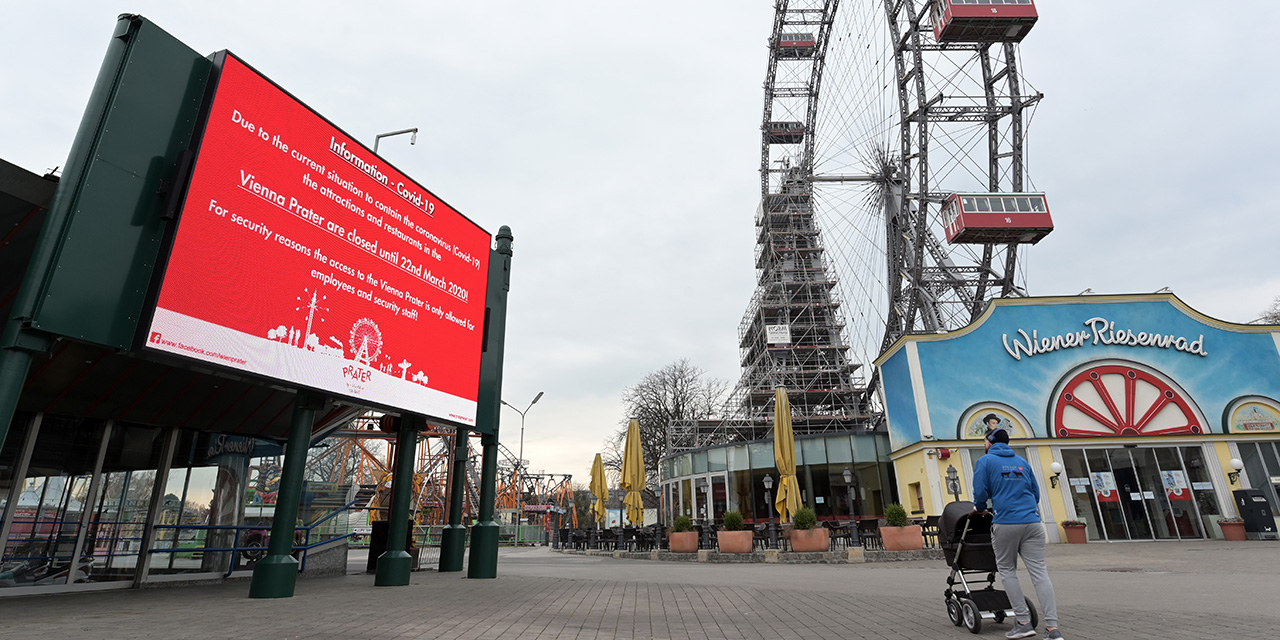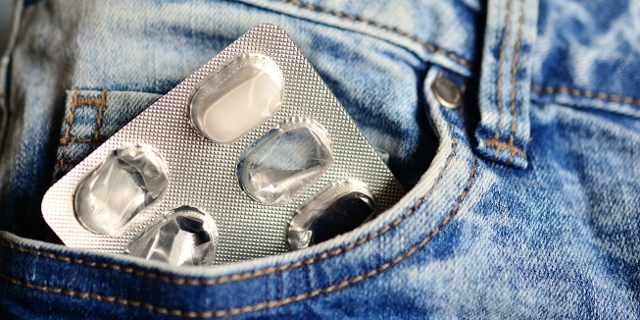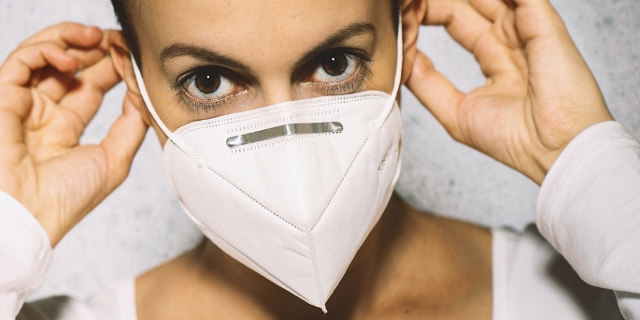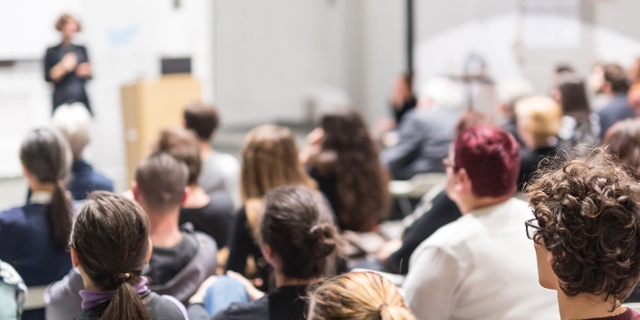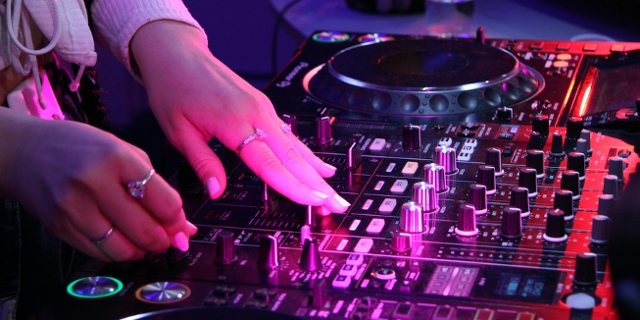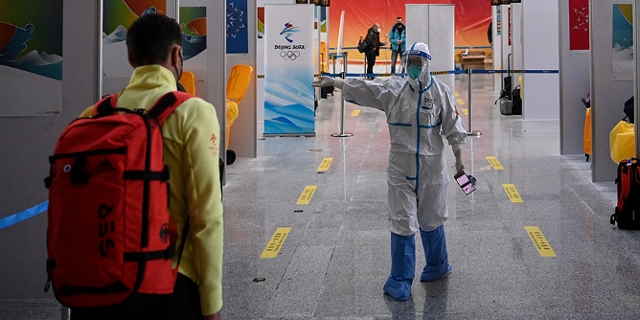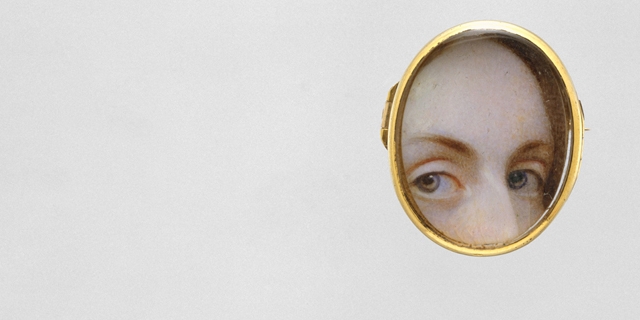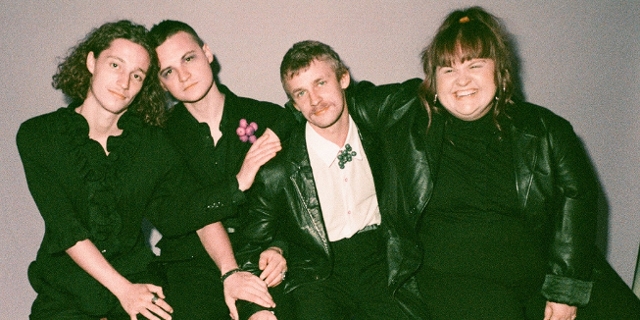Corona Virus in Austria
The Austrian government has extended the measures aimed at slowing the spread of the corona virus, Covid-19. So far, as of Tuesday 7th April at 3p.m., 12,519 people have tested positive for the virus, with 243 confirmed fatalities.
These numbers are obviously constantly changing and regularly updated here:
Severe acute respiratory syndrome corona virus 2 (SARS-CoV-2) is the virus strain that causes Covid-19.
The symptoms generally start with a fever followed by a dry cough, which can lead to breathing problems. Early symptoms can easily be confused with other winter bugs. Most cases will be mild but it is important to avoid passing on the infection.
The medical advice on protecting yourself is thorough and regular hand washing and, wherever possible, to avoid close contact with people outside your household.
If you have symptoms or are worried that you may have the virus, stay at home and call the phone number 1450 (available 24/7)
New Developments 6th of April.
On Monday, April 6, it became mandatory to wear a facemask when shopping is supermarkets and chemists.
At a press-conference, Chancellor Sebastian Kurz announced that the anti-corona virus restrictions were to be prolonged until the end of April.
He also announced a step by step re-ignition of Austrian economic life:
As of April 14 small stores can be reopened.
As of May 1 all stores, shopping malls and hairdressers may reopen but with limitations on the numbers of people inside at any time.
As of mid-May restaurants, cafes and hotels will be allowed reopen.
No public events will be allowed until the end of June - neither sporting nor cultural.
Kurz says the step-by-step re-opening of public life will be stopped or even reversed if there is a steep rise in COV-19 cases.
New Measures As Of 30th March
At a press conference on the 30th March, the Austrian government announced further measures to slow the spread of the virus. Chancellor Sebastian Kurz repeated his analogy that the struggle against the disease is a „marathon“. Given the current rate of spread, he warned Austria was currently „in a period of calm before the storm.“
People living in Austria will now be asked to wear face-masks while shopping for food. These will be handed to people outside supermarkets. The floors will be marked to help the customers keep a distance of 1 metre between each other while queuing.
Police will be increasingly patrolling that people, outside of their homes, keep the minimum distance of 1 metre between each other; a decree passed by law on the 15th of March (see below). The interior ministry warns that people can expect fines for those caught not respecting the social distancing measures but that the government appeals for personal responsibility.
The government priority is to protect so called „high risk“ groups. That means older people as well as people with serious underlying medical conditions and impaired immune systems. It will be now obligatory for employers to order such employees to stay at home via the option of home office or leave of absence (Freistellung). In this latter case, the government will recompense the wages of the worker.
The Protection Law of 15th March 2020
In an extraordinary session of parliament on Sunday 15th March, Chancellor Sebastian Kurz extended restrictions on freedom of movement. The measures were passed unanimously in record time.
As of Monday the 16th March, you should only leave your house for three reasons, Kurz said:
1) for work engagements and activities that can’t be delayed or carried out from your own home,
2) to make urgent purchases of food,
3) to go to the aid of other people in urgent need.
These measures will be in place until at least Easter Monday.
What You Can Do
You can go out into the fresh air; for a walk or to ride your bike, for example, but only alone or with people with whom you share a household.
There is no time limit on the amount of time you spend outside but during any excursion you must keep one metre distance to other people you encounter.
Chancellor Kurz said these excursions should only be undertaken if absolutely necessary. The principle is ‚stay at home, whenever possible.‘
The Possible Penalties
The Austrian police has been tasked with controlling the new regulations and if you break the rules, fines of up to 2,180 Euro can be applied.
Other Medical Information
If you want to visit a doctor these days, patients are asked not to just turn up at the surgery (doctor’s office) but, instead to make an appointment by telephone. If you have an appointment that is not urgent, you are asked to postpone it.
If the appointment is urgent and you are unable to postpone it, then you are urged to get there punctually so that the waiting-room does not become crowded.
Electronic Prescriptions
If you take long-term medication, you don’t need to go to the doctor to prolong the prescription. Just call you doctor and he or she will have the prescription sent electronically to a chemist within easy reach.
Either you can pick up the medication or a relative or support person. They just require your name and your social insurance number.
Returning From High Risk Areas
The province of Tyrol has been declared a „high-risk region“ If you spent time in that region within the past two weeks, you have to self-isolate for a period of 14 days.
The same is true if you recently returned from any other area of Austria which are now under regional quarantine.
These are the same measures required of returnees from international hotspots.
What’s Open
Food shops, chemists, post offices, petrol stations, banks, tobacconists and animal feed stores all remain open.
The authorities say there is no need to make large “hamster purchases” of provisions.
No Bars, No Restaurants, No Sports
Kurz also announced further restrictions on everyday life in Austria.
As of Tuesday, 17th March, restaurants and bars will be shut entirely. Before this new tightening of the rules, they had been told they could open until 3 p.m.
Border News
The European Union has closed its external borders for 30 days.
The travel ban will affect all non-EU nationals from visiting the bloc, except long-term residents, family members of EU nationals and diplomats, cross-border and healthcare workers, and people transporting goods.
Flights from the UK, the Netherlands, Russia and Ukraine have been added to the list of those denied permission to land in Austria.
Flight connections with France, Spain and Switzerland, Iran and South Korea had already been suspended to slow the spread of coronavirus. Italian citizens have been barred entry to Austria.
Germany is closing its borders with Austria as of 8 a.m. on Monday, 16th, with exceptions being made for commuters and the transport of goods. Austria has introduced border checks with Switzerland and Liechtenstein.
Hungary has closed its borders to passenger travel.
Education
Secondary schools and institutes of higher education in Austria are shut. Primary schools and Kindergartens have switched to providing childcare because the government wants to avoid having young children being looked after by their grandparents, putting the most at-risk group in more danger of becoming infected.
Call For Solidarity
Chancellor Kurz spoke of weeks ahead that will be “challenging, difficult and painful” but called on a sense of solidarity in society to fight the spread of the virus. He said everyone had a part to play in this common struggle.
Young men who did alternative social service (Zivildienst) in the last five years will be called into service; the period of those currently serving will be prolonged.
A four billion euro aid fund has been created for businesses affected by the corona shutdown.
Publiziert am 30.03.2020







